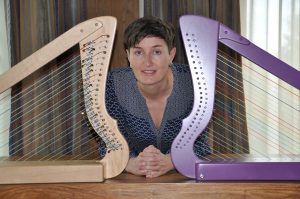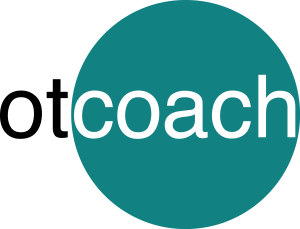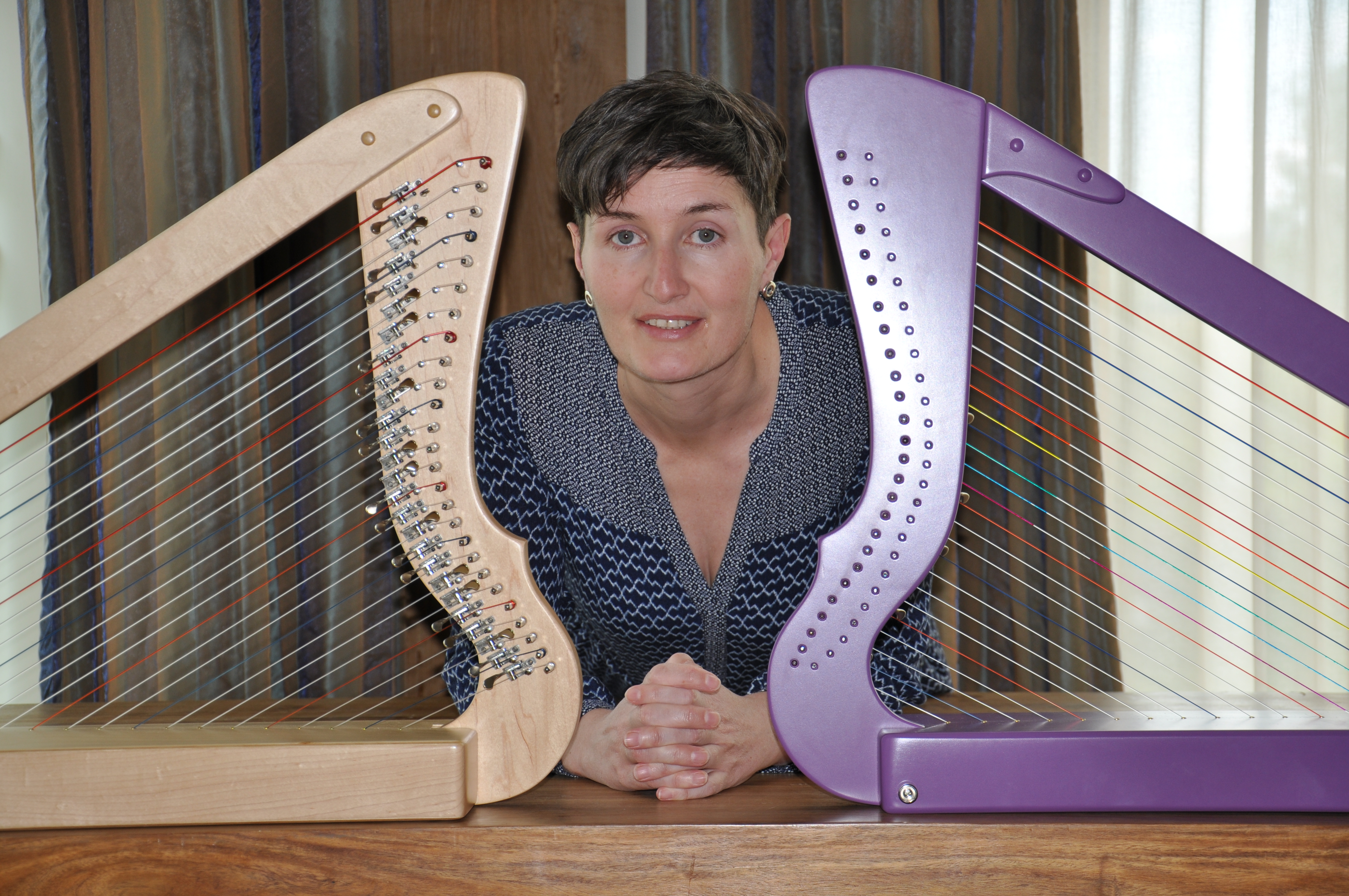 After working for a couple of years in the NHS, within mental health and learning disabilities, I became frustrated with the lack of resources for running creative groups as well as the volume of paperwork and generic work that kept me at my desk and away from my occupational therapy clients. I felt I wasn’t able to practice as the holistic, creative, problem solving occupational therapist that I wanted to be.
After working for a couple of years in the NHS, within mental health and learning disabilities, I became frustrated with the lack of resources for running creative groups as well as the volume of paperwork and generic work that kept me at my desk and away from my occupational therapy clients. I felt I wasn’t able to practice as the holistic, creative, problem solving occupational therapist that I wanted to be.
I’d always enjoyed music and playing instruments, (piano, accordion and harp) and recognised it as an intrinsic part of being human. We use music to regulate our mood and for celebrations, but live music can be difficult to access later in life especially in some care facilities.
I had the idea that I would train to be a harp therapist: combining occupational therapy and my harp playing skills to provide therapeutic activity to people with disability, illness, mental health or emotional difficulties.
I questioned whether harp playing would be a meaningful activity to people, but concluded that if people were occupationally deprived then harp playing could probably and reasonably become a meaningful activity. I found out that small lightweight therapy harps could be adapted to different environments, and could easily be played on the floor, in wheelchairs or even in bed.
Some of the therapeutic benefits of the harp include:
- it gives a voice
- enables participation as an individual or as part of a group
- it allows people to participate in their own way: playing; singing; dancing; swaying; tapping; or just watching
- prompts reminiscence
- it facilitates creativity
- builds a sense of community
- allows people to learn something new
- it is a very sensory instrument, providing tactile, auditory, visual, proprioceptive and vestibular stimulation
- it relaxes and stimulates the nervous system
- it activates the motor system, using gross and fine motor skills
I studied part time for two years to become a certified therapeutic musician through the International Harp Therapy Programme. During that course I developed the From the Harp business plan and entered the Santander University of Brighton Enterprise Award, winning the most entrepreneurial service award. This provided me with the money to buy a set of six rainbow coloured therapy harps, and gave me access to a wealth of business mentoring.
Exactly a week before I won this prize I was diagnosed with breast cancer. This diagnosis nearly stopped me in my tracks. Suddenly I found myself in hospital, lying on a plinth, staring up at the health professionals, facing uncertainty and constant anxiety. I discovered a clearer understanding of health anxiety and the fear of losing functionality. I have no doubt that this experience has made me a more empathetic therapist. It also heightened my awareness that life is short and increased my determination not to spend more time at a desk doing paperwork.
My business mentor suggested I write a blog as part of my social media presence. My second blog post ‘What is occupational therapy?’ went viral with over 37,000 views and 10,000 Facebook shares so far. After sitting around the house going through cancer treatment, too fatigued to go out, I was now sitting around the house going viral watching my blog post stats soar! I was dealing with correspondence from occupational therapists and people that were not attached to the profession from all around the world. This felt great, filled me with confidence and I really was ‘loud and proud’ to be promoting occupational therapy.
You can read the blog here: https://fromtheharp.co.uk/2017/01/24/what-is-occupational-therapy/
The blog was being viewed globally, but I’m a small local business, so I issued a press release about going viral and was soon in local newsprint (Brighton Argus and the Portsmouth News). I was live on air on BBC Radio Solent, challenging the presenter to a harp duet with me. It’s not exactly duelling banjos, but you can view this video and a video of harp therapy in a nursing home on my website: https://fromtheharp.co.uk/videos/
My blog was a distraction from all the pre start up business essentials I had been concentrating on, so since then I’ve got back on track and I’ve had enquiries from nursing homes, day centres, mental health facilities and a home schooling group.
I’m of the mindset that occupational therapy can benefit everyone, and I want as many people as possible to access harps. So I’m happy to open this up to all client groups and see how it grows. I’m first and foremost an occupational therapist and use harps to practise my profession.
Following my own cancer diagnosis, despite a wealth of complementary therapies and counselling on offer there was no occupational therapy available to me. In the future, I plan to offer occupational therapy for people going through cancer diagnosis and treatment. Occupational therapy could be integral to help people with fatigue management, pain management, personal hygiene strategies, meditation and relaxation, healthy meal planning, sleep, routine, and changes to lifestyle and environment. Perhaps I’ll use telehealth to explore some of these areas.
I’m at the very start of my ‘doing it differently’ journey, but I know it’s the right decision for me. Combining a hobby and occupational therapy, two of my passions, seems like the dream job.
From the Harp website: www.fromtheharp.co.uk Email: alice@fromtheharp.co.uk


